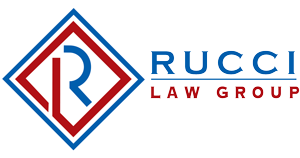This is a question we are frequently asked, and the answer depends on your individual objectives. The following is a review of the four most commonly used options and the advantages and disadvantages of each from an estate planning perspective.
Titling a house in an irrevocable trust for either Medicaid, asset protection, or estate tax planning purposes is outside the scope of this article, but this option may be appropriate under certain circumstances as well.
#1. Right of Survivorship
For a married couple, the most popular form of ownership is jointly with the right of survivorship. The advantages of this form of ownership are:
- It is simple and inexpensive to implement. Two names are included on the property deed at closing or later through a quitclaim deed.
- It helps to avoid probate because the asset passes by operation of law and does not pass through a Will.
The disadvantages of this form of ownership are:
- The deed is filed on the land records, so the homeownership is a matter of public record.
- If the surviving spouse would like the house to pass outside of probate upon the surviving spouse’s death, the house will need to be transferred into a revocable trust upon the death of the first spouse.
#2. Revocable Trusts
Another form of ownership frequently used is a revocable trust. A revocable trust is a trust set up during one’s lifetime which can be amended or revoked by the Grantor at any time. This level of control allows the Grantor of the trust to also serve as a Trustee. The advantages of this form of ownership are:
- If the house is owned in the trust’s name, the trust is a private document and the trustees’ names do not need to be listed on the local land records.
- By owning the house in the trust’s name, the asset becomes a non-probate asset because it is not in either spouse’s sole name. Please note, that a house in a revocable trust will always be part of the Grantors’ gross estate for estate tax purposes.
- Because the Grantors can also serve as Trustees, both spouses still have full control over the asset.
- Since the revocable trust is viewed as a see-through entity for tax purposes, the heirs will be able to receive a step-up in basis upon each of the Grantor’s deaths.
- The trust is not taxed as a separate entity and is included as part of the Grantors’ income tax returns.
- There is no need to change ownership status after the first spouse’s death because the asset continues to be owned by the trust.
The disadvantages of this form of ownership are:
- There are initial legal costs involved in setting up the trust. The trust can either be a stand-alone specific property trust or it can be a trust established to distribute all the estate assets. However, once the trust is established, it is simple to maintain.
#3. Tenants in Common
The third form of ownership is Tenants in Common. This form can be used by two or more individuals or entities and delineates the ownership in specific per-person or entity percentages, on an equal or unequal basis. The advantages of this form of ownership are:
- Each party owns a distinct quantifiable share and that share can be bequeathed separately to each party’s respective heirs.
The disadvantages of this form of ownership are:
- If the property is owned in someone’s sole name as a tenant in common, it will be a probate asset and pass as part of the probate process.
- A Co-Owners Agreement is recommended to govern common expenses such as property taxes, capital improvements, and buyout and sale terms to avoid disagreement.
- Each party can bring an action for partition whereby a court may order the property to be physically divided or, if that’s not possible, sold and the proceeds distributed among the co-owners.
#4. Limited Liability Company
The fourth homeownership option is a limited liability company (“LLC”). This option is most useful when rent is being received or the house is an investment property. The advantages of an LLC are:
- LLCs protect the owner’s personal assets from liabilities related to the LLC. Liability would be limited to the value of the LLC. It is important to note that asset protection is not absolute and certain situations, such as personal misconduct, a personal guarantee, or failure to maintain the company as a separate legal entity, may put personal assets at risk.
- The LLC is a separate tax-paying entity. If it is receiving income, expenses such as property tax and mortgage interest are fully deductible and are not subject to the state and local deduction caps applicable to individuals. This benefit would not apply to your personal residence if no rental income is being received.
The disadvantages of this form of ownership are:
- There is an initial cost of setting up the LLC including filing with the state of formation and drafting the governing documents including an operating agreement.
- There are annual filing requirements and fees.
- Accurate books and record keeping are required in order to protect personal assets from LLC liabilities.
- Disclosure information is required under the Corporate Transparency Act for Beneficial Ownership (as defined in the statute) and must be updated any time there is a change in the Beneficial Ownership.
- Ownership information is required to be filed with the Secretary of State, and that information is a matter of public record.
As the foregoing review demonstrates, the answer to the initial question above depends on your individual objectives and circumstances. At Rucci Law Group, we have knowledge and experience in real estate, trust creation, and LLC formation, and we would be happy to answer any questions you may have to help you determine which option is best for you.
Michele D. Gartland is a partner of Rucci Law Group, LLC. She practices primarily in the areas of trusts and estates. Michele can be reached at 203-202-9686 or at [email protected].

